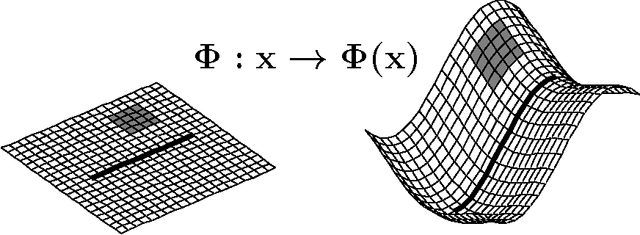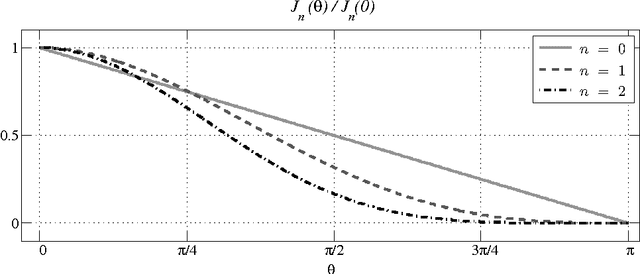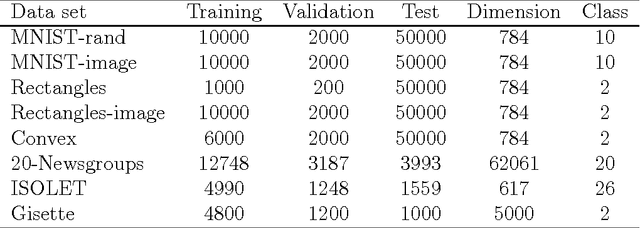Analysis and Extension of Arc-Cosine Kernels for Large Margin Classification
Paper and Code
Dec 16, 2011



We investigate a recently proposed family of positive-definite kernels that mimic the computation in large neural networks. We examine the properties of these kernels using tools from differential geometry; specifically, we analyze the geometry of surfaces in Hilbert space that are induced by these kernels. When this geometry is described by a Riemannian manifold, we derive results for the metric, curvature, and volume element. Interestingly, though, we find that the simplest kernel in this family does not admit such an interpretation. We explore two variations of these kernels that mimic computation in neural networks with different activation functions. We experiment with these new kernels on several data sets and highlight their general trends in performance for classification.
 Add to Chrome
Add to Chrome Add to Firefox
Add to Firefox Add to Edge
Add to Edge